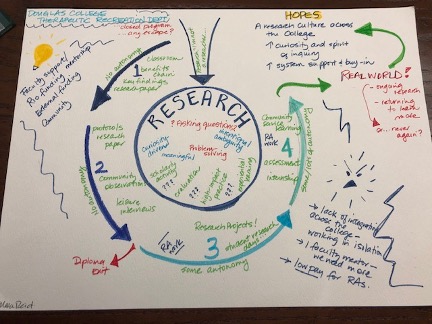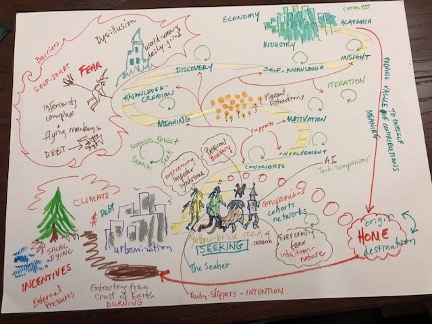A New Cartography of Undergraduate Student Research Journey Mapping
Participatory cultural mapping has evolved as a powerful tool for community engagement, knowledge co-production, and identity formation. This article explores the adaptation of cultural mapping techniques to supplement conventional journey mapping practices and understand “the undergraduate student research journey,” shedding light on the views of students as they engage with research as both a concept and a lived experience.
Introduction to A New Cartography of Undergraduate Research Journey Mapping
Participatory cultural mapping has evolved as a powerful tool for community engagement, knowledge co-production, and identity formation. This research, led by Will Garrett-Petts and Sukh Heer Matonovich, explores the adaptation of cultural mapping techniques to supplement conventional journey mapping practices and understand “the undergraduate student research journey,” shedding light on the views of students as they engage with research as both a concept and a lived experience.
Using arts-based cultural mapping techniques, we asked students and faculty to make visible their lived experience of university research, employing a “draw-talk” protocol to document their encounters with research inside and outside the classroom. Building on the mental mapping work of Kevin Lynch (1960) we developed a schema for analyzing and interpreting what we identified as “undergraduate student research journey maps,” arguing that cultural mapping provides a readymade technique for understanding how students encounter and navigate university research cultures. Insights into the differences between expert institutional representations and student perspectives were revealed. By applying this approach, we not only gained a deeper understanding of the undergraduate research process but we were also prompted to advocate for the inclusion of student voices in shaping the future planning of undergraduate research support programs.
A refereed article based on this work is in process and will be featured here following its publication.
Keywords: undergraduate research experiences, cultural mapping, student research journey maps, institutional planning
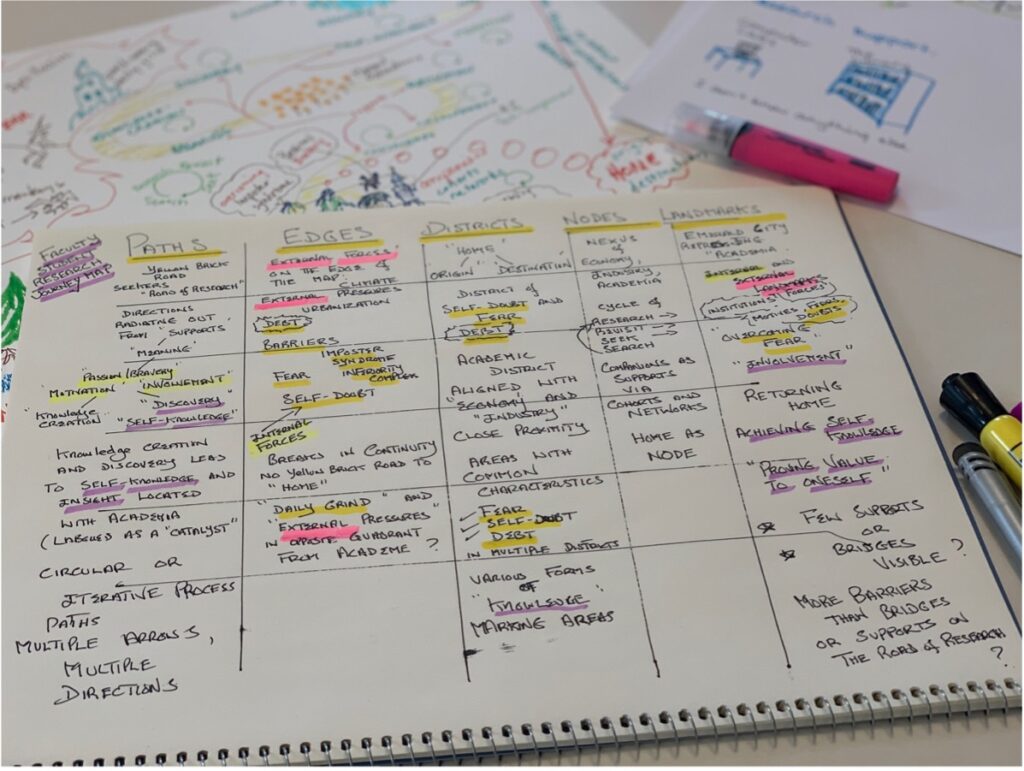
Images of Student Journey Maps
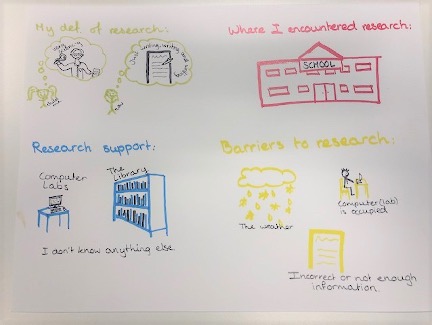
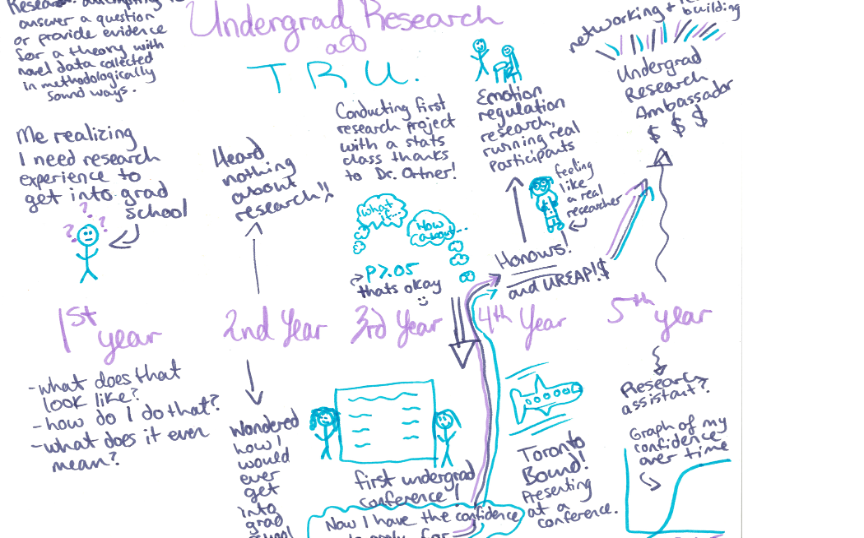
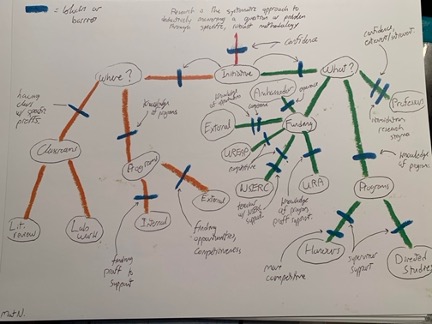
Images of Faculty Maps Depicting Their Perceptions of Student Research Journeys
